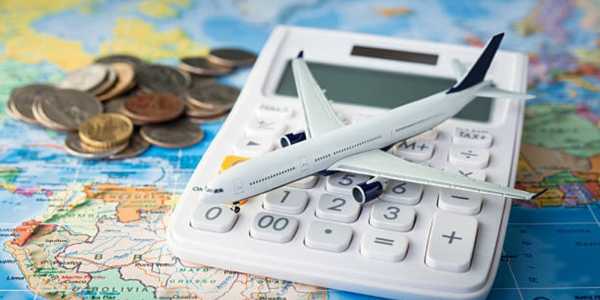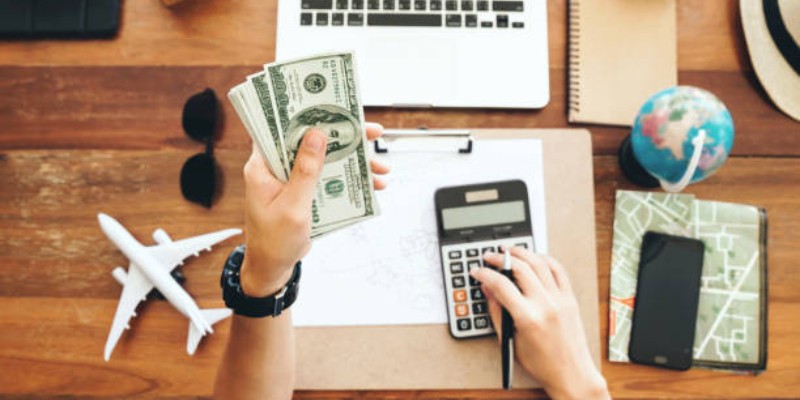How to Create a Realistic Travel Budget That Works

Many travelers don’t realize that a realistic budget is key to a successful trip. It helps you avoid running out of money and covers unexpected costs—without needing to be complicated. It only needs to be true to the income and cost of living.
Know Where the Money Is Going
A smart traveler writes down every possible expense before leaving home. This includes flights, accommodation, meals, local transport, entrance fees, shopping, tips, and even internet charges.
No detail is too small. One hidden cost that surprises many people is baggage fees for cheap airlines. Small items add up. The more detailed the expense list, the fewer surprises there will be.

A travel budget should always include an extra amount for unexpected costs. Currency rate changes, sudden price hikes, or an emergency may appear without warning. Travel experts suggest putting aside about 10% to 20% more than the planned total. That extra money could save a lot of trouble when something unexpected happens. For example, the U.S. Travel Association often shares guides on how to plan for such hidden expenses.
Research Costs Ahead of Time
One reason budgets fail is that travelers guess instead of researching. A smart move is to compare flight prices on multiple days and book ahead when possible. Different seasons and days of the week can change ticket prices. The same goes for hotels. Costs change based on location, season, and even special events happening nearby.
Food costs are another surprise that can ruin a budget. A hotel room with breakfast included may help save money. Some travelers find out how much local meals cost by reading trusted travel blogs or government tourism boards.
Set Spending Limits by Category
After doing research, the next step is to split the money into clear spending groups. These groups can include transport, lodging, food, entertainment, shopping, and emergency funds. Having set amounts for each group keeps spending under control.
Some people choose daily limits. Others divide by week or by destination if they plan to visit many places. No matter the method, the goal is the same: do not overspend in one group and end up stuck in another.
Use Budget Tools and Apps
Many modern travelers now use budget tools to track spending. These tools can be mobile apps, spreadsheets, or simple note pads. A good tool will show how much money has been spent, where it went, and what remains. This helps the traveler stay on track.

Some apps even convert currencies and show real-time exchange rates. This can be useful for trips that include many countries. Many smart travelers read reviews about different apps on trusted tech sites before picking one.
Avoid Common Budget Mistakes
It is easy to make mistakes when planning a travel budget. One common mistake is ignoring small daily expenses like coffee, snacks, or bottled water. These small costs build up quickly. Another mistake is booking without comparing enough options. Sometimes booking early is cheaper, but sometimes last-minute deals work better. It depends on the place and season.
Another tip is to check if the destination charges extra fees for tourists. Some cities have special taxes for visitors. These charges may not appear in booking sites but will be added at hotels or airports.
Save on Flights and Stays
Flights and lodging are usually the biggest parts of a travel budget. A smart way to save is by looking at alternative airports. Sometimes flying into a smaller airport nearby can save a lot of money. For lodging, short-term rentals or hostels may cost less than hotels.
Group travel can also help cut costs. Sharing rooms, splitting rides, or booking group tours may lower the total bill. Some travelers join loyalty programs to earn points for discounts later. These methods can make even expensive places more affordable.
Stick to the Budget on the Road
A realistic travel budget works only if it is respected. Travelers should check daily spending against the plan. If they spend too much one day, they can spend less the next day. Avoiding impulse buys and saying no to unplanned tours or shopping is part of sticking to the plan.

Travel insurance may look like an extra expense but can save huge amounts if things go wrong. It covers medical issues, lost luggage, or canceled flights. Many travelers skip insurance to save money upfront and end up losing more later.
When the Trip Ends
A smart traveler reviews the budget after the trip. This helps to see what worked and what did not. It can also help plan better for the next adventure. Keeping all receipts and notes makes this step easier.
A realistic budget does not stop fun. It makes sure the traveler enjoys the trip without worrying about running out of money halfway. Wise planning today protects tomorrow’s plans.










